What does the future hold for analytic and experimental philosophy? Petr Jedlička looks at current research methods and asks where the next generation of philosophers might lead us.
In his blog “The End of Analytic Philosophy”1 and its sequel,2 Liam Kofi Bright put forth a strong claim that analytic philosophy is “a degenerating research programme” (in the Lakatosian sense), and riding on its heels is a failure of confidence in the whole programme, especially among younger philosophers.
“For what I think is gone, and is not coming back, is any hope that from all this will emerge a well-validated and rational-consensus-generating theory of grand topics of interest. We can, and we will, keep generating puzzles for any particular answer given, we will never persuade our colleagues who disagree, we will never finally settle what to say about the simple cases in order to be able to move on to the grand problems of philosophy. My anecdotal impression is that junior philosophers are hyper aware of these bleak prospects for anything like creation of a shared scientific paradigm.”
Recently Joshua Knobe also alluded to the topic of recent developments in philosophy in his blogpost “The Kids Are Alright”,3 in which he expressed his view that the next generation of philosophers (philosophers of science included) are focusing more on the “detailed investigations of individual things” rather than on “larger theories that aim to capture the big picture”.
“Broadly speaking, the usual worry is that kids today are focusing too much on detailed investigations of individual things and not enough on larger theories that aim to capture the big picture. Caricaturing somewhat, the thought is that a typical Gen X grad student in the philosophy of language would be working on something like “the nature of meaning,” while a typical Gen Z grad student would be working on something more like “free choice inferences involving disjunctions under epistemic modals.” Analogously, the typical Gen X student in the philosophy of science would be working on something like “the nature of scientific theories,” while the typical Gen Z grad student would be working on something more like “the application of causal Bayes nets to time series data.”
Although coming from different perspectives, Bright and Knobe both hit the nail on the head, and voiced some concerns that have been around for quite a while. Contemporary philosophy, or major parts of it, seems to have stopped presenting grand theories of any kind and has resorted instead to smaller tasks, which also reveals a lack of shared commitment to common research programmes or paradigms (with some exceptions such as experimental philosophy on which I will comment later).
Is current philosophy in a medieval quagmire?
Bright further elaborated on this lack of progress in his LSE talk4 in which he likened the current situation to the decline of medieval scholasticism. In my view this is true. And I see similarities, particularly in current methodology which promotes overspecialisation, as one of the main reasons. The scholastic method rested mainly on extensive glossing on the then authorities, whether they were Scriptures, Church fathers, classical philosophers, or other scholastic writers. Due to this peculiar dialectic feature, over time the discourse became unintelligible to anyone outside the inner circle of philosophical and theological initiates which contributed to its downfall and paved the way for modern philosophy.
At the present time, it is certainly not a problem for analytic philosophy only, we also find the same discursive practices in all areas, be it Kantian, Nietzschean, Husserlian, Heideggerian or other studies, which ad infinitum pile on layers of comparisons and interpretations on original sources, or secondary, and tertiary literatures, and thus create endless work and amusement for themselves.5 This game of commentaries and meta-commentaries is present in abundance in any philosophical journal in the form of void intellectual exercises on arcane subjects worded in formulaic lingo accessible only to a niche group of philosophers. Don’t get me wrong, this is certainly a characteristic of any advanced discourse in any highly developed field. But the problem arises when such texts completely lose their recourse or reference to any solid empirical or theoretical issues, and along the way their meanings. This overspecialisation has its internal methodological and epistemic causes but it is also fueled by external factors, such as the “publish or perish” culture in current academia. We can already see some of its unfortunate effects, which are damaging not only for philosophy itself but also for its perception by the outside world.
Knobe illustrates this shift through the difference between Generation X and Z philosophers, but he doesn’t consider it regrettable because with this focus we actually learn more about the big issues as well: “The best way to make progress on the abstract questions is to engage in a detailed study of individual things and then use our knowledge of those individual things to get insight into more general issues.“ And he provides concrete examples of this from experimental philosophy. (I did this kind of x-phi research in the empirical conceptual analysis when I investigated the understanding of the concept of “scientific objectivity” among current natural scientists, which is summed up in our paper “Theoretical and empirical perspectives on objectivity” that also examines limitations of this method.)6
No salvation from x-phi either?
So, I agree with Knobe, but only partly. Empirical and experimental methods in philosophy can be fruitful and produce tangible results (“research facts”), which can be further analysed and theorized upon. However, the onward march in this direction is not without its dangers, which may not be perceived in the x-phi circles – because current experimental philosophy is still by all measures young. But there are disciplines which have already walked this path. For instance, sociology until the mid-20th century produced multiple general theories about how society works (the dominant was Parsons’ structural functionalism, which counted as a full-fledged grand theory). Later after its empirical turn some sociologists had the idea that an even better grand theory would emerge after more empirical findings about society were amassed, which precipitated a plethora of studies on every possible subject in the social world. This should have been done by integrating these empirical findings into broader frameworks called middle-range theories (R. K. Merton) focusing on some smaller aspect of social life (e.g. social mobility), which would in a stepwise manner lead to a grand theory. Later this approach was adopted by the coincidentally labelled “analytical sociology”. But this promise was not fulfilled, and instead, sociology ended up in a multiparadigmatic state with many competing paradigms, the incommensurability of which prevents the creation of a universally accepted theory (or framework, or narrative), and also with the undesirable side effect of extreme overspecialisation (sociologies of…) The reasons for this are many, so to name a few of the most important – social phenomena are too complex, social reality is highly transient etc.7
And in my opinion, this is valid for philosophy as well, and for similar reasons. I predict that experimental philosophy will produce a lot of insights into the use of concepts and other similar topics, but it may later lose its momentum because it will not be able to make generalisations which are a prerequisite to a more universal theory. So, philosophy should not pin that much hope on the empirical and experimental programme. The caveat is that someone would have to do the synthetic work and this will not prove to be so easy, not least because philosophers will never agree on the starting point, methods or outcomes.
Whence the brighter future?
To conclude more optimistically, it may be that philosophy has a brighter future in the following domains:
First, philosophy can orient itself to quite practical tasks, such as x-phi research into moral dilemmas which have a direct impact on real-life problems, e.g. the “The Moral Machine experiment” on global moral preferences for autonomous vehicles,8 which will find its use in the future in the automobile industry. If we remain in the sphere of moral questions, this approach can be taken even further, for philosophers can finally design their own close-to-real-life experiments, upon which they can draw their conclusions and build their theories, such as in the immersive virtual reality study of moral decision making and action applied to the classical footbridge dilemma.9
A second possible way to proceed is to become even more closely connected to the science itself – after all it is not so long ago that the better part of science belonged to the body of natural philosophy or history. Today philosophy can contribute by providing insights to topics such as climate science, reproducibility, the covid crisis etc. These tasks simply follow from the fact that all scientific disciplines have some underlying philosophical assumptions and ensuing limitations. In this Popperian sense, the whole of science is a provisional “building erected on piles above a swamp”, so inevitably scientific disciplines in their progress touch on some deeper metaphysical or epistemological questions – which has been apparent ever since Galileo pushed the boundaries of medieval metaphysics with his astronomical observations, or when Einstein renegotiated the metaphysical roots of Newtonian physics (partly inspired by Mach’s philosophising). And this applies to contemporary science as well, which scientists sometimes forget and of which they need to be reminded either by their own circles of philosophising scientists or philosophers themselves.
Third way could lead in a more experiential direction, since a lot, if not a majority of recent Western philosophy has been of a speculative kind. What do I mean by that? Recently, I teamed up with psychologists and psychiatrists to conduct an experiment which investigated the effects of a prolonged experience of Restricted Environmental Stimulation (Chamber REST) on a group of scientists. This method has a long tradition in some Eastern cultures and has been used for therapeutic purposes in the past decades, but it has also been known to induce substantial perceptual changes e.g. visual or auditory sensations or pseudo-hallucinations. We surmised that such experience could also modify some basic metaphysical beliefs which scientists hold about the nature of reality, such as their opinions about Plato’s cave allegory. We discovered10 that this method indeed has such potential and is in this respect comparable to other methods inducing Altered States of Consciousness (ASCs), however, it is dependent on the subjects’ previous experiences. Thus, philosophy can also attempt to leave its safe haven of linguistic or textual analyses, or questionnaire surveys in the case of x-phi, (again, no grudge against those if they are done properly), and embark on more daring voyages.
Finally, philosophy doesn’t necessarily have to measure its achievements through a utilitarian lens but can be rather regarded as a method of personal intellectual growth, an aspect which is increasingly overlooked in contemporary academia. Personal growth as a goal in itself involves, in my view, the not so obvious understanding of the complexity and sophistication of the world, which can – if used properly – successfully immunise philosophers against the traps of various ideologies and simplified binary worldviews on various matters (unless they decide to exploit that knowledge to become ideologues themselves, examples of which are also plentiful in history).
By Petr Jedlička
Petr Jedlička has studied Sociology and the Philosophy of Science. He currently works in x-phi of science. For the past three years he led the empirical part of an extensive multidisciplinary project on scientific objectivity in the natural sciences which employed a host of methods on the subject ranging from empirical conceptual analysis and surveys to psychological experiments. At LSE he pursued the project Issues In Reproducibility supervised by Roman Frigg.








































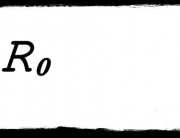

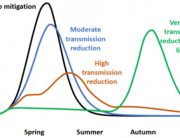




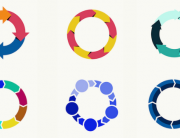





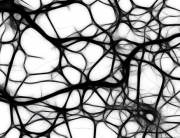








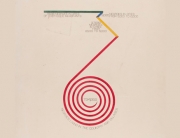


















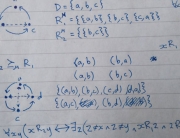




























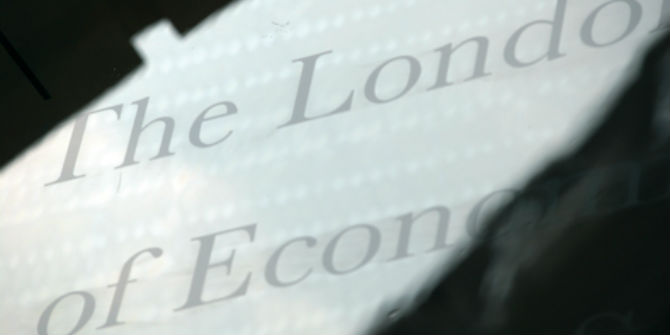





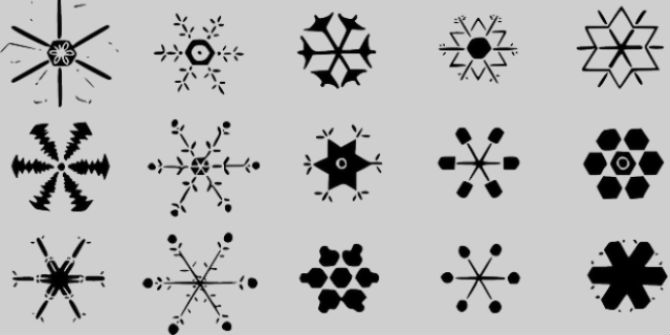




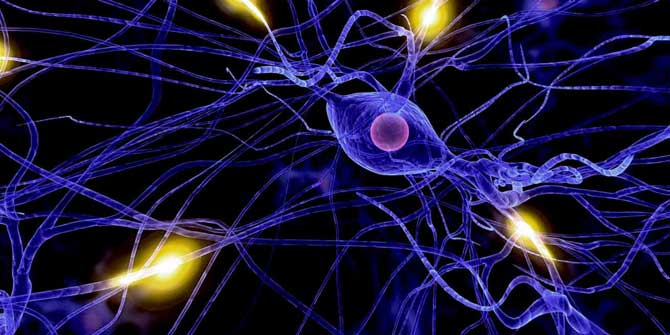

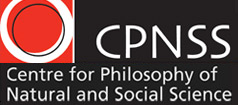
Good to see some philosophy back on the blog after the two previous posts riddled with fashionable nonsense.
I would argue that philosophy has a strong and yet unfulfilled role to play in progress studies.